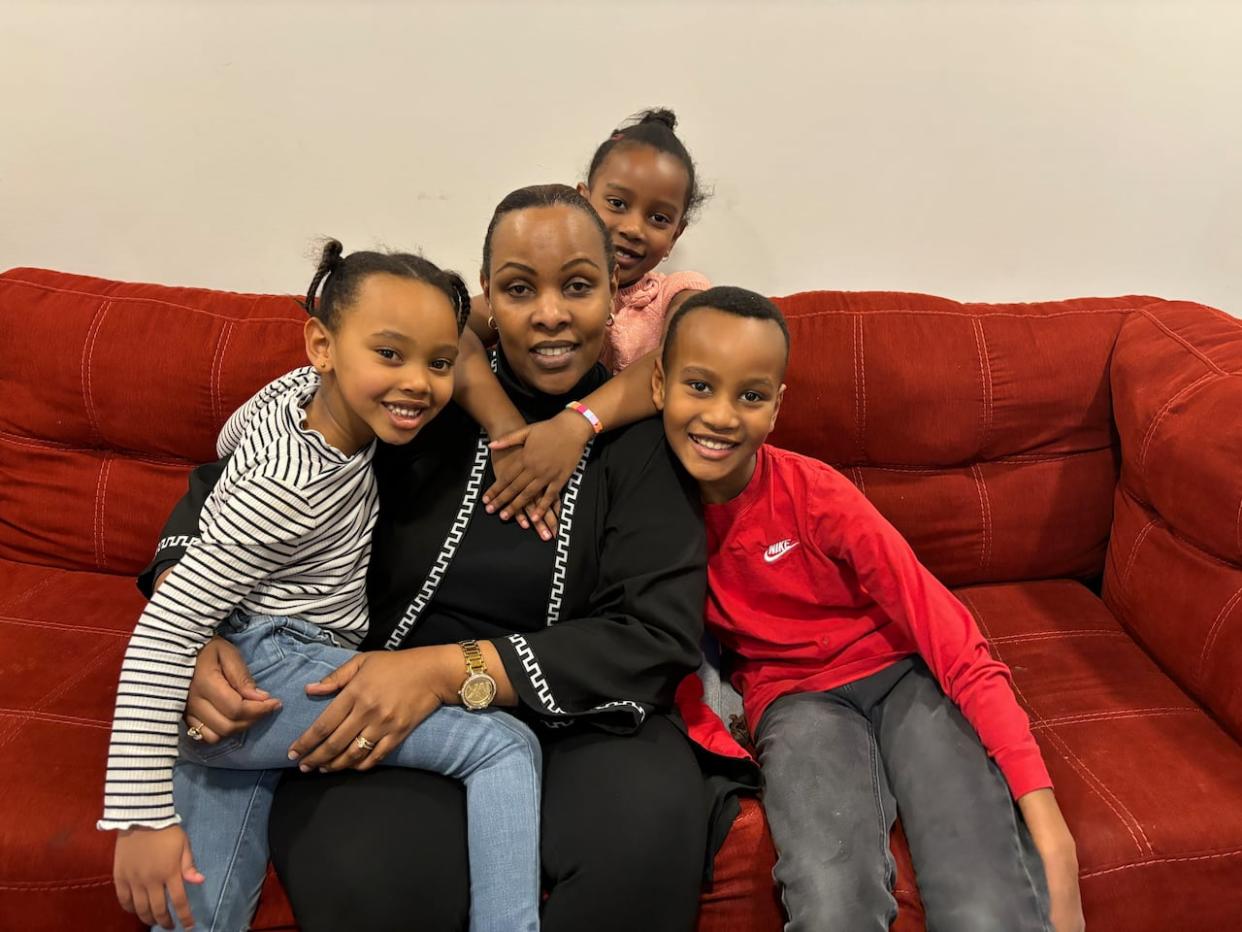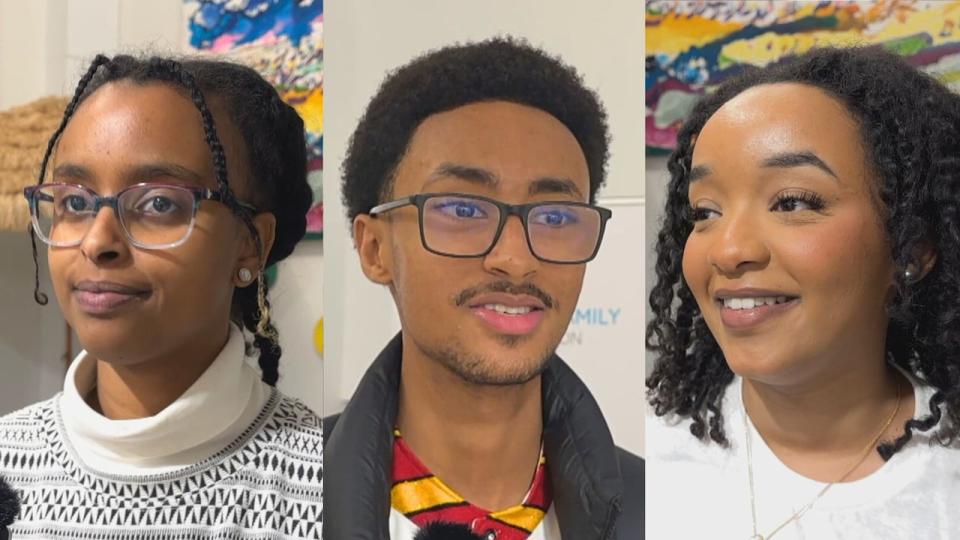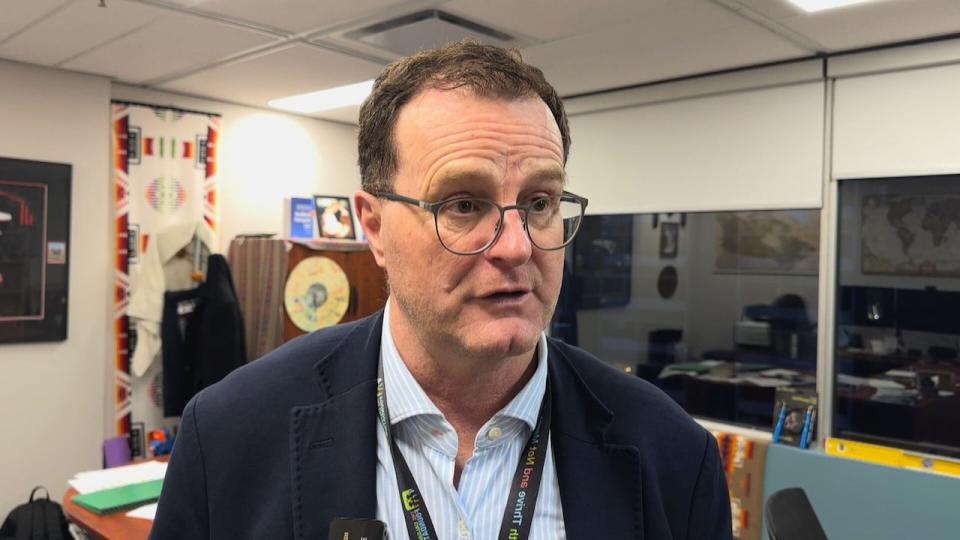'Different to back home': Newcomers navigate what feels odd, undisciplined in Western education

Aline Muhongayire's son was acting out in school. Nothing too serious — having a hard time focusing, wiggling in his seat and quickly losing interest in activities.
It was nothing that could possibly warrant 16 phone calls and notes from the teacher in just kindergarten and Grade 1, she thought.
It left the Rwandan-Canadian mother mystified. Why wasn't the teacher disciplining her child? Why wasn't this dealt with inside the classroom?
This year, Calgary schools are adjusting to another wave of newcomers entering the system, stretching language and settlement programs.
And for those students and families, the challenge isn't just to learn English and catch up on math. It's also figuring out what a Western school system expects.
Because that's very different from what's expected in many of the countries these families are immigrating from — especially when it comes to physical discipline and homework, say families and those who support them in the Calgary school system.
It's a confusing landscape where each party is assuming the other has responsibility. The child can get lost in that, unless they take on responsibility to navigate this new world for themselves.
This was our story. When CBC Calgary reached out to young adults in local East African communities and offered to mentor us to tell a news story of importance to our communities, we thought back to our own experience in school — of sometimes feeling like we were on our own, like we had less support from our parents than Western peers or than teachers seemed to expect.
We watched other newcomers struggle, and we wanted to know if this feeling was widespread and why it's happening.
How come the teachers cannot handle the [child's] issues? - Aline Muhongayire
That's why Muhongayire shared her experience. She has four children and immigrated from Rwanda seven years ago.
In Rwanda, classrooms are intentionally pretty bare. There might be a multiplication table posted, but rarely would you see children's artwork or anything that could be distracting.
The expectation is that in the class, children sit and focus, and the teacher is empowered to enforce that discipline.
"The classrooms (in Calgary) are so very distracting," she said. "How do you want a child to concentrate with all those colours? Why don't you put up things that are going with the lesson that you are (teaching). At least he will see formulas."
When he was a little older, her son Ian did get into a fight at school. The teacher called and seemed to expect her to deal with it.
"In terms of education, (Calgary) is really different to back home," she said. "How come the teachers can not handle the [child's] issues?"
"The problem here is that kids are not disciplined at school. Teachers aren't firm with kids or talk louder. Back home, they do slap them or take their ears or [tell them] go in the corner.… The teacher back home is like a parent but teachers here are so limited."
In Rwanda, her children would bring workbooks with homework home each night. She would make sure they did the work and it let her follow how they were doing in school.
"Here, kids can go two weeks, three weeks, and if you don't ask, you will not see any paper saying 'this is the homework,'" she said.
Ian is doing better now. He seems to have grown out of his rambunctious stage, plus Muhongayire feels more settled with the time and knowledge to help her kids through school. But she wonders if there's a better way.
We brought our question to our peers. When Muhongayire speaks of frustration, did they see that in their parents?

From left to right: Bethel Afework, Shaban Amin and Beemnet Wubneh moved to Canada partway through their education. They learned to navigate between what the school and what their families expected. (Nardos Tecle/CBC)
'I was kind of left alone in the middle'
We set up a microphone at a recent youth-focused Black History Month event put on by the non-profit, East African-focused Immigrant Outreach Society.
The first-generation students we spoke with said the difference between their experience and that of Western-raised peers was obvious, especially in the attitude of their parents toward the teacher.
"I definitely (saw it)," said Beemnet Wubneh, who came to Canada when she was three. "I feel like a lot of the time the teachers believe that the parents are always on the child's side. And then the parents, at least my parents, would always be on the teacher's side. I was kind of left alone in the middle of that."
As for homework help, her mom struggled with English during that time and her dad was often busy catching up on his office work during the evenings. He would help when he could. Beemnet would try returning to the classroom after school to get extra help from the teacher. It was on her to find the help she needed to succeed.
Shaban Amin had a similar experience after his family immigrated. He felt like his parents put the teacher on a pedestal.
"The teacher is like, they're up there. You know what I mean? It's like she can't do any wrong," he said.
But he graduated last year and says he just had to learn to work harder to communicate, both with the teacher and his parents. He realized it was on him to build trust and bridge the language gap between the adults in order to succeed.
For Bethel Afework, she found teachers were generally understanding and pretty culturally sensitive to newcomers. Outside of that, she became her parents' language guide.
"I feel like the teachers were pretty understanding because I went to a pretty diverse school. But in the outside world — the medical system, the airport and so many other scenarios — [I'd just say] 'Hold on. Let me talk to them. Let me call customer service.'"

Frank Cattoni leads the Calgary Bridge Foundation for Youth, which works with schools and families to bridge misunderstandings. (Elise Stolte/CBC)
Is this dynamic affecting how students do in school? We tried to find research on that. There are many studies documenting the importance of the school-family relationship, but we couldn't find anything looking at these cultural nuances in that relationship.
'Give them a decade'
But Frank Cattoni is in a good position to see this broader view. He leads the Calgary Bridge Foundation for Youth. His staff work with thousands of newcomers students in schools across Calgary to help bridge this cultural gap — explaining the school to the parents and vice versa.
They speak 40 languages and help families understand why it might seem like school teachers have no discipline. They also help families understand the role of parent-teacher interviews, how to access report cards online and what a school bus is. They also set up peer mentors to help students navigate a new world.
"I've been to 32 different countries," said Cattoni. "I have lots of experience working and living in other parts of the world [and can say that] only a fraction of the world lives like we do [in the West]."
When Cattoni was a child, he was a newcomer with no English. His family came from northern Italy in 1967. He said it can be really tough for these kids, and he worries about some falling through the cracks.
But there's something else to remember, he said.
"Mom and dad are working — day job, night job and weekend job to keep the family afloat, right? There's no parental supervision at home and they might have younger siblings to look after, too. This puts a lot of pressure on the young people, right?" he said.
"But I would argue it builds resilience in them."
"You've got to give them a decade (to find their feet). But look at my own family. My brother has been running his own company for 40 years. The next brother? He's a corporate pilot. My sister is a charge nurse of the intensive care unit at the Children's Hospital. I happen to be the CEO of the Calgary Bridge Foundation for Youth."
"You can track that in a lot of immigrants that come because the resiliency built up in the kids in the early stages helps them later on in life. That is a very common thing to see."

Sharing Knowledge: An invitation to all local East African communities. (Lianne Sabourin/CBC)
Last fall, CBC Calgary launched a new community project with local East African community members. This included a workshop to help young adults to tell stories of importance to their community and mentorship from CBC producer Elise Stolte.
Check out other reporting sparked by this partnership.

 Yahoo News
Yahoo News 
